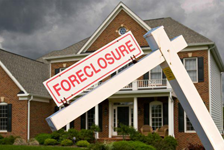
Last time we checked, the mortality rate was 100%. This means that owners of real property within homeowners associations (“HOA’s” or “Associations”) will inevitably pass away at some point. This leaves many questions for Boards and management about how to navigate issues surrounding the separate interest still titled in the name of the deceased.
Enforcement of Governing Documents Against Deceased Owners
For obvious reasons, dead owners usually do not maintain their properties in good condition and are often ineffective landlords if their separate interest is occupied by a tenant. Management and Boards may not even know that an owner has passed away such that they continue to send violation letters and fine these deceased owners to no avail.
If an owner is ignoring fines and other enforcement action combined with not paying monthly assessments or maintaining a property, it is wise to investigate whether the owner is still living. This is especially important because there is a one-year statute of limitation from the date of an owner’s death to pursue enforcement or collection-related action per Cal. Code Civ. Proc. § 366.2. This strict deadline applies even if the HOA had no knowledge the owner was deceased. Law firms can assist Associations with public records searches to detect an open probate or a death certificate.
Court Order or Consent Required to Enter Onto Property
Although many CC&Rs have provisions allowing an HOA and its agents to enter onto a property upon prior notice to cure certain compliance issues, it is recommended for the protection of the HOA and its vendors that a court order first be obtained before entering property without advance express consent. This is the case even if the HOA believes the property is unoccupied because California case law holds that a contractual right to self-help is not a defense to a claim for forcible entry. (Glass v. Najafi (2000) 78 Cal.App.4th 45, 48–49, 92; See also Daluiso v. Boone (1969) 71 Cal.2d 484, 493, “Regardless of who has the right to possession, orderly procedure and preservation of the peace require that the actual possession shall not be disturbed except by legal process.”)
Collection Methods Against a Deceased Owner
Since unpaid regular and special assessments may attach to the property, the lien-related collection process is similar for living and deceased owners, except that with a deceased owner, you are dealing with the administrator or personal representative of the decedent’s estate instead of with the living owner.
If an Association wants to sue a deceased owner or make a claim against their estate for monies owed as a creditor, it must pursue these remedies against the deceased owner’s estate. Suing an estate of a decedent or making a claim for monies owed against them requires an open probate action in superior court. The problem is that sometimes, an owner passes away with no will or next of kin in which case a probate of the owner’s estate may not be opened.
In such cases, management may contact the public administrator of the county in which the decedent’s property is located and request that they open a probate. If the public administrator fails to do so or drags their feet, the HOA can open a probate action as a creditor to make sure the probate case is opened and the claim for monies owed is timely submitted.
Once a probate is open, a creditor has only four months from the date the executor or administrator is appointed to file a claim in probate. (Cal. Code Civ. Proc. § 377.40; Prob. Code §§9100 et seq.). An HOA should be mindful that the one-year limit to file a claim against a deceased owner is not extended by this four-month deadline.
Thankfully, an HOA’s ability to foreclose on a secured lien via the nonjudicial foreclosure process set forth in Cal. Civ. Code §§ 2924–2924h is not affected by the aforementioned one-year statute of limitations to seek money judgments, injunctive relief, and/or judicial foreclosure against a deceased person. This is because such debt is secured by the property and is not attached to the deceased person.
Evicting Tenants
Deceased owners can leave occupants behind who may not be compliant with the HOA’s governing documents or who may create nuisance conditions as is frequently the case with squatters. The law provides an owner with the standing to evict tenants via an unlawful detainer action. When the owner is deceased, the HOA can and should call the estate (through its administrator) to a hearing and fine it for violations of the occupants. The administrator of the estate has the authority to gain tenant compliance via eviction or otherwise. Fining the estate can be an effective way to gain the estate’s compliance. Some governing documents even have provisions assigning the standing to evict tenants who violate the governing documents to the HOA via an unlawful detainer action. These provisions usually allow the HOA to charge the owner (or their estate) for the fees and costs incurred to evict non-compliant tenants if the owner or their estate fails to act.
Biohazard Cleanup
It is a macabre reality that occupants can and do pass away in the property. If the occupant lived alone and had no close friends or family, it can be weeks until the death is discovered. An HOA may first learn about such an occurrence via a report of unpleasant odors or vectors emanating from the property. If a dead occupant is suspected, law enforcement should be called. Once the body has been transported by the coroner, the biological materials left behind can pose a risk to the health and safety of the community’s residents such that the Association may consider calling in a biohazard clean up vendor to handle the situation. Depending on the language in the governing documents, the cost of the cleanup may become a charge against the deceased owner’s estate provided the proper processes are followed pursuant to the HOA’s enforcement policy and the laws applicable to probate claims.
| Collection and enforcement proceedings against deceased owners in California is a complex area of law such that HOA’s should contact their legal counsel to ensure proper compliance and to avoid missing important statutory deadlines. |
 HOA Lawyer Blog
HOA Lawyer Blog


 Asked – Our HOA Board of Directors has been advised that a homeowner who is delinquent in their payment of assessments has filed bankruptcy. If the homeowner obtains a bankruptcy discharge does the HOA have to write off the delinquent account as a bad debt?
Asked – Our HOA Board of Directors has been advised that a homeowner who is delinquent in their payment of assessments has filed bankruptcy. If the homeowner obtains a bankruptcy discharge does the HOA have to write off the delinquent account as a bad debt? The homestead exemption protects the value of a homeowner’s primary residence in the event of a bankruptcy. Specifically, it provides that a specified portion of equity in a homestead is exempt from execution to satisfy a judgment debt. Existing state law prescribes that the amount of this homestead exemption is $75,000 for single homeowners, $100,000 for married homeowners, or $175,000 for homeowners who are seniors and/or disabled. (Code Civ. Proc., § 704.730(a).)
The homestead exemption protects the value of a homeowner’s primary residence in the event of a bankruptcy. Specifically, it provides that a specified portion of equity in a homestead is exempt from execution to satisfy a judgment debt. Existing state law prescribes that the amount of this homestead exemption is $75,000 for single homeowners, $100,000 for married homeowners, or $175,000 for homeowners who are seniors and/or disabled. (Code Civ. Proc., § 704.730(a).)
 *Asked & Answered
*Asked & Answered *Asked and Answered
*Asked and Answered It is no secret that homeowners’ associations (“HOA”) are run and managed through the funds of monthly HOA assessments (“Fees”), and more often than not, HOA’s hire and retain debt collection firms to collect on past due Fees from delinquent members of the community. Sometimes, this leads HOA’s to lose large amounts of money in collection costs and write-offs (of “bad debt”) due to homeowner challenges under the Federal Debt Collection Practices Act (“FDCPA” or “Act”). The FDCPA provides protection to consumers (e.g., homeowners) from abusive debt collection practices by placing a myriad of procedures and limitations of which all debt collection firms must abide by, unless said firm solely recoups debt via non-judicial foreclosure, in which case the firm will only be subject to FDCPA § 1692f(6), discussed in detail further below. This was the U.S. Supreme Court’s holding in
It is no secret that homeowners’ associations (“HOA”) are run and managed through the funds of monthly HOA assessments (“Fees”), and more often than not, HOA’s hire and retain debt collection firms to collect on past due Fees from delinquent members of the community. Sometimes, this leads HOA’s to lose large amounts of money in collection costs and write-offs (of “bad debt”) due to homeowner challenges under the Federal Debt Collection Practices Act (“FDCPA” or “Act”). The FDCPA provides protection to consumers (e.g., homeowners) from abusive debt collection practices by placing a myriad of procedures and limitations of which all debt collection firms must abide by, unless said firm solely recoups debt via non-judicial foreclosure, in which case the firm will only be subject to FDCPA § 1692f(6), discussed in detail further below. This was the U.S. Supreme Court’s holding in  California is currently facing a serious shortage of affordable housing. The housing crunch is impacting individuals and businesses in all parts of the state. Businesses are having trouble attracting and retaining employees and individuals face longer commute times and overcrowding, among a host of other issues.
California is currently facing a serious shortage of affordable housing. The housing crunch is impacting individuals and businesses in all parts of the state. Businesses are having trouble attracting and retaining employees and individuals face longer commute times and overcrowding, among a host of other issues. The collection practices of HOA collection vendors have come under increased scrutiny over recent years. For example, we have
The collection practices of HOA collection vendors have come under increased scrutiny over recent years. For example, we have 